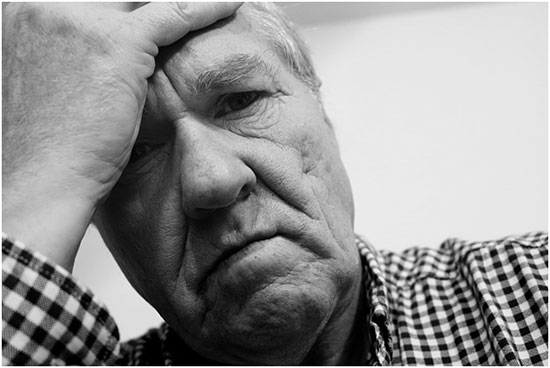
Being a caregiver is a full-time job that has its own unique ups and downs. You have pressure on you from so many different angles — another person is depending on you for their subsistence. But what happens when you simply don’t feel like doing it anymore? When that feeling known as “burnout” happens, and you just don’t feel like getting up and getting going?
As a caregiver, you become so invested in someone else’s life. You are literally devoted to caring for someone else. It is a huge sacrifice of time and resources, and even when you are caring for a dearly loved person, the stress can be overwhelming. So many have been there, being the one to feed them, laugh with them, support them, love on them — and you have no room for burnout to happen. The good news is, it doesn’t have to! There are so many ways of preventing caregivers from feeling overwhelmed and burned-out.

What is Caregiver Burnout?
Caregiver burnout is that feeling of being overwhelmed. When you are emotionally exhausted, physically drained, and mentally tired, and just don’t have anything left to give. It’s that feeling of being so very tired, yet unable to sleep. The tears that envelope you at the most minuscule of things.
Symptoms of caregiver burnout, according to our resource Carer Resources, include:
- Feeling tired and run down
- Difficulty or inability to sleep
- Trouble concentrating
- Increased appetite
- Neglecting responsibilities that you used to delight in
- Less energy than you once had
- An uncanny ability to catch every illness that you come in contact with
- Impatient and irritable
- Unable to relax, even when someone else is present
If this describes you, don’t walk away feeling discouraged! Caregiving is a high-stress job, and it is one that requires your presence almost 24/7. You must be available to help someone else understand instructions, to calm the person you’re caring for, administer medicine, and just be there for them.
What Causes Burnout?
There are so many contributors to feeling burned-out, and there are just as many ways to prevent it from happening. It is important to try to pinpoint the cause and prevent it, because the person you are caring for depends on you to feel your best, so you can give them the best care possible.
The number one reason of caregiver burnout is not taking enough time for yourself. It sounds selfish, but in reality, it isn’t. You cannot give the best care possible to someone else if you yourself are tired, worn out, and in need of a good break. Sometimes you just need to breath, and that is perfectly okay! You should try to schedule some time for yourself into your day and not just squeeze it into an early morning or later in the evening. Take thirty minutes and do something. Take a walk, read a book, take a quick nap.
Unrealistic expectations on the part of the caregiver is another big reason to experience burnout. At times, we think as caregivers we can start caring for someone and make everything all better again. And at times that’s just not a possibility. Maybe we think that we will never be upset, frustrated, or grumpy, but we will end-up all that and more. Maybe we thought we could manage the household, pay the bills, get the groceries, and still just be there for the person we are caring for, but we realize we can’t do it on our own. It’s not a sign of failure — it’s a sign of being a normal human being. But so many will interpret this as just not being good enough.
When caring for a person with memory loss or a progressive disease, it can be heart breaking to realize just how far they’ve declined in their health. Their health declining is not somehow our fault. It is a normal part of the progress of the disease, and when we realize this, we take a huge burden off of ourselves.
How Can We Prevent Burnout?
There are so many resources and ways available to us today to prevent burnout form ever happening — and once we can identify the cause of burnout, we can handle it so much more efficiently.
- Take time for yourself. This is a big one, as discussed before. Schedule time into your day all your own, and realize you aren’t being selfish. You cannot give the best care if you are tired and easily annoyed. Read a book, bake some cookies, just sit down and relax. Is there a certain time the person you are caring for naps? Use that time to unwind and relax.
- Walk outside. Just walk out the door and sit in the sunshine. Or take a quick walk around the neighborhood if you are able to leave your charge for that long. Walk out to your mailbox. Science has proven the sunshine to lift a mood, give you energy, clear your head, and give you a fresh aspect on life.
- Schedule a “day off”. Ask someone you trust to come over for an hour or two, or three, or four. Understand that you may have to leave detailed instructions, and that you may have to answer a million phone calls related to something you just naturally do on a daily basis. But this gives you several hours to refresh yourself, whether you use the time to sleep, or to sit and think, or to run to the store or the coffee shop.
- Educate yourself about the illness. Make sure you understand what surprises may pop up that the doctors haven’t warned you about. Know the progression and nature of the disease. Understand the medications they are on, know the side effects, and understand how they are helping the person you are caring for. Nothing is more stressful than facing the unknown, and while you may not know a detailed analysis of what will happen, you will have general knowledge to keep you from getting stressed when little things happen.
- Call someone. Communicate with another person who can take your mind off of things for a little bit. When things get hard, you get frustrated, and you need a break. Take a little time to call a friend or family member and let it all out and then listen to the insight they give. Since they are not part of the situation, they will have a whole new dimension to bring to the table!
Remember that experiencing burnout doesn’t mean you have failed at the task at hand. It simply means that you are a human with normal emotions, feelings and needs. Acknowledge what happened, and take action to prevent it from happening again.
Featured Image Credit:geralt / Pixabay
In Post Image Credit:geralt / Pixabay


